Salt Of The Earth (1954), Dir. Herbert J. Biberman
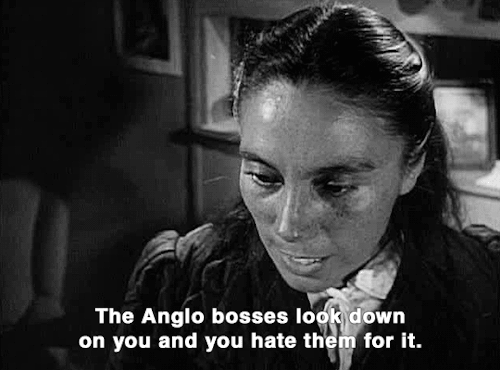

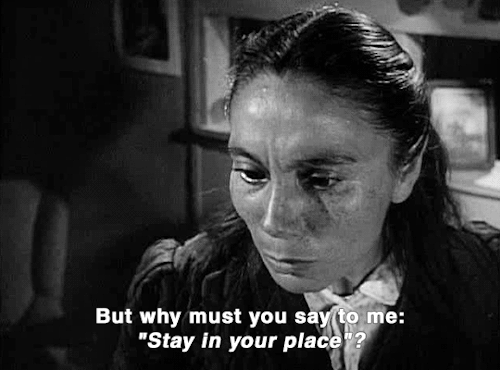

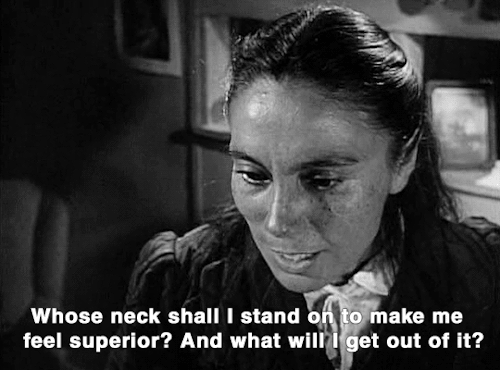
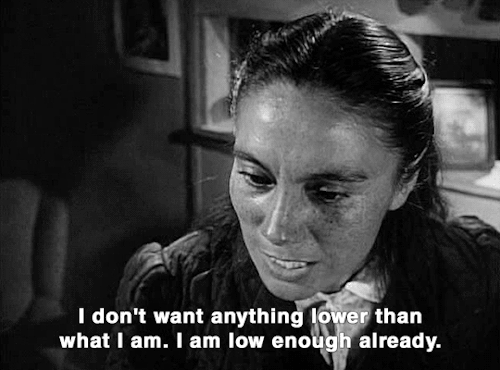


Salt of the Earth (1954), dir. Herbert J. Biberman
More Posts from Sayaosi and Others
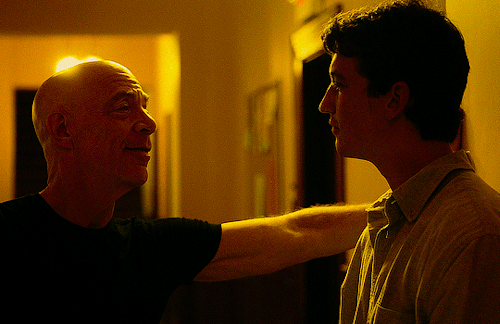




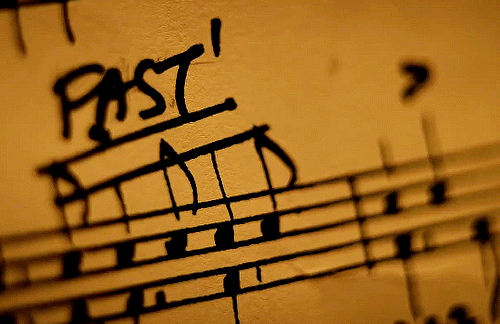




I’d rather die drunk, broke at 34, and have people at a dinner table talk about me than live to be rich and sober at 90 and nobody remember who I was. WHIPLASH (2014) Dir. Damien Chazelle
Just finished watching season 2 of Broadchurch. Tbh I lost interest about halfway through, but I wanted to finish it. It was so frustrating to watch. It bothered me that Beth seemed to be so upset at the fact that Mark cheated on her, but not at the fact that HE HIT DANNY. I thought the lawyers might develop some interesting story lines but, unfortunately, they just didn't do it for me. I could've done without the Sandbrook story line or maybe if they changed what happened/who killed the girls it would have been more interesting. Anyway, I did enjoy the first season of Broadchurch! I just wasn't a huge fan of this one. I probably won't watch the last season.
I'm convinced, that "Koisenu futari" is an extremely underrated show. The importance of its existence is simply enormous. Not only because of the aroace representation, but also because of how it helps allosexual people see what life and relationships can look like from a completely different perspective. How it teaches them to be more open and accepting of people who are different from them. And how it completely destroys all the patterns of modern film industry, considering that even in children's cartoons there is still, not very big, but usually at least some kind of romantic plotline for the main character. I'm so in love with this drama that I just can't

"I'll stay with him!"Razumikhin exclaimed. "I shan't turn my back on him for a second, and to hell with all those guests of mine, let them climb up and down the walls if they want to!"
Razzy please you're too pure. An angel on earth
everyone talks a lot about suffering and despair as it pertains to Dostoevsky’s work which is totally fair and understandable given the subject matter but I rarely see discussion of how deeply and sacredly tender the end of C&P is. I think there’s a very important lesson to be learned which is that you do not unilaterally get to decide that you are horrid beyond redemption and unworthy of love, no matter what horrible things you’ve done. Sonya and Razumikhin and Dunya do not abandon Rodya as he thinks they should and in fact they uproot their entire lives to make sure there will still be a place for him in the world when he gets out of prison. Other people have free will and they can use that free will to unconditionally love and forgive you and there’s nothing you can do about that, whether you choose to receive it or not so you may as well receive it- even if you feel unworthy. And that is like the very beginning of hope and coming back from the place of no return. Is letting yourself be loved. And letting yourself be loved—- even if you don’t feel that you deserve it—- opens the gateway to experiencing love for others yourself after a prolonged period of cutting yourself off from feeling those feelings of positive regard. It’s a stream that flows both ways. And it doesn’t change any of the horrifying facts about the past. But it makes it possible to begin to live again.






House of Hummingbird 벌새 (2018)
Pyotr Petrovitch Luzhin: So I rented some rooms for your mother and sister—
Razumikhin: oh from that place that’s nasty and stinks and has rats and roaches and smells bad and is dirty and dusty as fuck?
I watched Dear Ex a couple of days ago because it had been recommended in a lot of LGBTQ Taiwanese film lists to me. And it was a good film. But what I found really interesting was how the film’s thesis statement about motherly love is ultimately one I think a lot of queer people, especially queer people who grew up in cultures emphasising filial piety, could find really cathartic.
In the film, there’s a teenage boy who decided to live away from his overbearing mother with a gay man (who was also his dad’s lover; the gay man functions as a sort of stepfather figure to him now since his dad passed away). And as revenge, his mom outed the man to his elderly mother, assuming that it would ruin their relationship (earlier the elderly woman also expressed confusion and admitted to not really ‘getting’ queer relationships too, which supported the assumption). She also spends much of the film helicopter parenting her son. Which her teenage son makes clear that he dislikes.
Later on in the film, mother and son go and see a play that the gay man directed and acted in. The play bombed. But at the very end, the gay man’s elderly mother was there, and gave him a bouquet of flowers and hugged him. The film ends with the teenage boy living with the gay man now, and his mother visiting from time to time. The teenage boy and his mother’s relationship is also shown to have greatly improved.
And I found this interesting, because ultimately, the thesis statement (or at least one interpretation one can derive from it) of the film is about motherly love. Or more specifically, how sometimes a mother can best show her love by stepping aside and allowing her child to live their life according to what they believe is right for them.
And I think this message is something that I think can resonate with a lot of queer people, because I think one of the big pains that a lot of queer people face in their lives is unaccepting families. Families who do expect something out of their child without giving them the freedom to live their life. Especially in a society like Taiwan, where children are very heavily expected to be filial to their parents. To have a film talk about motherly/parental love in such a manner - that the mothers eventually stepped back and allowed their children to be themselves and live their lives - would be very cathartic for a lot of queer people.
If you watched and loved The Bear and feel like crying some more you should watch Boiling Point (2021)
-
 theredqueenandthebloodwyrm reblogged this · 3 weeks ago
theredqueenandthebloodwyrm reblogged this · 3 weeks ago -
 ashofteh liked this · 3 weeks ago
ashofteh liked this · 3 weeks ago -
 0rln liked this · 3 weeks ago
0rln liked this · 3 weeks ago -
 just-another-weird-artist liked this · 3 weeks ago
just-another-weird-artist liked this · 3 weeks ago -
 crazygoku06 liked this · 1 month ago
crazygoku06 liked this · 1 month ago -
 impistry liked this · 1 month ago
impistry liked this · 1 month ago -
 keskaowl reblogged this · 1 month ago
keskaowl reblogged this · 1 month ago -
 snailtiddies420 liked this · 1 month ago
snailtiddies420 liked this · 1 month ago -
 realworldchamp liked this · 1 month ago
realworldchamp liked this · 1 month ago -
 slinksii liked this · 1 month ago
slinksii liked this · 1 month ago -
 namsookhee liked this · 1 month ago
namsookhee liked this · 1 month ago -
 alowkey reblogged this · 1 month ago
alowkey reblogged this · 1 month ago -
 gettheleadout reblogged this · 1 month ago
gettheleadout reblogged this · 1 month ago -
 gettheleadout liked this · 1 month ago
gettheleadout liked this · 1 month ago -
 cartoonjessie liked this · 1 month ago
cartoonjessie liked this · 1 month ago -
 smols-darklighter reblogged this · 1 month ago
smols-darklighter reblogged this · 1 month ago -
 scorpius-rising reblogged this · 1 month ago
scorpius-rising reblogged this · 1 month ago -
 ofwings liked this · 1 month ago
ofwings liked this · 1 month ago -
 mswyrr reblogged this · 1 month ago
mswyrr reblogged this · 1 month ago -
 cannotcontrolfeels reblogged this · 1 month ago
cannotcontrolfeels reblogged this · 1 month ago -
 gratia-illi-puella liked this · 1 month ago
gratia-illi-puella liked this · 1 month ago -
 butterberg liked this · 1 month ago
butterberg liked this · 1 month ago -
 kommgehwech reblogged this · 1 month ago
kommgehwech reblogged this · 1 month ago -
 alterugdalf reblogged this · 1 month ago
alterugdalf reblogged this · 1 month ago -
 alterugdalf liked this · 1 month ago
alterugdalf liked this · 1 month ago -
 shi1498912 reblogged this · 1 month ago
shi1498912 reblogged this · 1 month ago -
 instantdoodlez liked this · 1 month ago
instantdoodlez liked this · 1 month ago -
 ididntknowwhattocallthis reblogged this · 1 month ago
ididntknowwhattocallthis reblogged this · 1 month ago -
 darthfoil reblogged this · 1 month ago
darthfoil reblogged this · 1 month ago -
 lewistheeditor liked this · 1 month ago
lewistheeditor liked this · 1 month ago -
 rogerbarel liked this · 1 month ago
rogerbarel liked this · 1 month ago -
 moetxt reblogged this · 1 month ago
moetxt reblogged this · 1 month ago -
 honey-skulls liked this · 1 month ago
honey-skulls liked this · 1 month ago -
 swirlspill reblogged this · 1 month ago
swirlspill reblogged this · 1 month ago -
 lettucedloophole reblogged this · 1 month ago
lettucedloophole reblogged this · 1 month ago -
 eisit reblogged this · 1 month ago
eisit reblogged this · 1 month ago -
 shiningseaarchives liked this · 1 month ago
shiningseaarchives liked this · 1 month ago -
 dreamingnereid liked this · 1 month ago
dreamingnereid liked this · 1 month ago -
 jakikazu liked this · 1 month ago
jakikazu liked this · 1 month ago -
 brynthebookworm liked this · 1 month ago
brynthebookworm liked this · 1 month ago -
 chase-the-ladybug liked this · 1 month ago
chase-the-ladybug liked this · 1 month ago -
 gravtea liked this · 1 month ago
gravtea liked this · 1 month ago -
 sapphic-serose liked this · 1 month ago
sapphic-serose liked this · 1 month ago -
 pdqsketch-reblog reblogged this · 1 month ago
pdqsketch-reblog reblogged this · 1 month ago -
 fangirlingbookdragon liked this · 1 month ago
fangirlingbookdragon liked this · 1 month ago -
 apple--cereal reblogged this · 1 month ago
apple--cereal reblogged this · 1 month ago -
 liquidcargo reblogged this · 1 month ago
liquidcargo reblogged this · 1 month ago -
 anamcaramia reblogged this · 1 month ago
anamcaramia reblogged this · 1 month ago

She/her | 22 | 🩷💛🩵-💚🩶🤍🩶💚Blogging about my various interests including TV shows, film, books, video games, current events, and the occasional meme. My letterboxed: https://boxd.it/civFT
123 posts